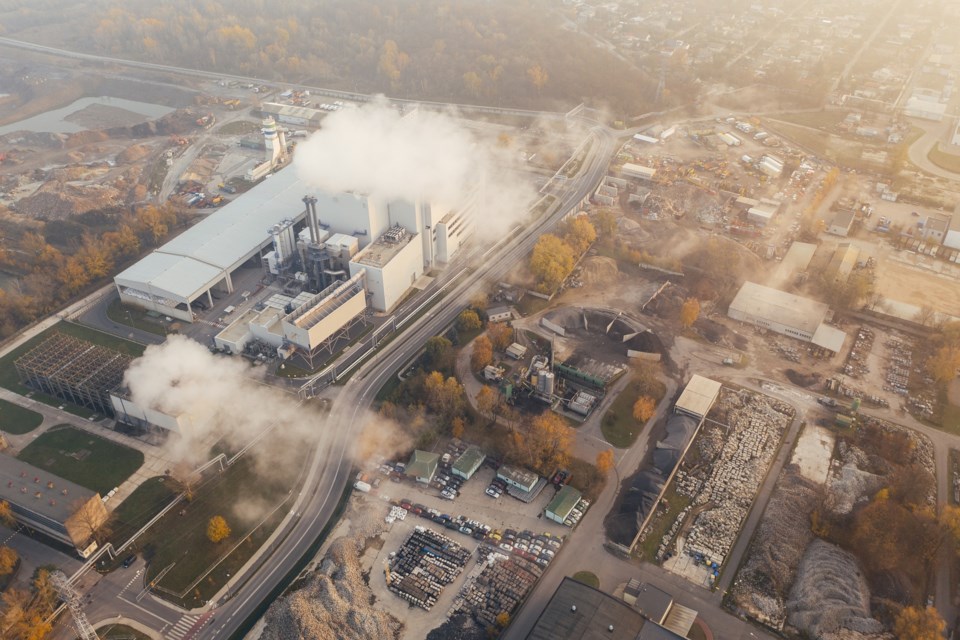The Longmont Leader accepts contributions, photos, and op-eds for publication from community members, business leaders and public officials on local topics. Publication will be at the discretion of the editor and published opinions do not represent the views of The Longmont Leader or its staff. To submit a contribution, email [email protected].
My wife and I moved to Longmont in December after 40 years in Phoenix. Although we miss our friends and family in Arizona, we love Longmont and the people we’ve met here. However, it seems we’ve traded the roasting heat of Phoenix for the Front Range’s smoky skies and ozone alerts! Our baby grandson lives here, and we want him to grow up in a healthy, clear Colorado.
I have hope our air quality might get better because Congress is currently working on legislation to improve America’s infrastructure while also helping address climate change. If enacted, this legislation will also help Longmont accelerate its transition to clean, renewable energy sources for electricity and achieve its goals to reduce carbon emissions. In April, President Biden committed the U.S. to reducing greenhouse gas emissions 50-52% by 2030 compared to 2005 levels. To achieve that goal, Biden proposed spending billions of dollars on upgrading the nation’s energy grid to facilitate the transmission of renewable energy, EV charging stations, and incentives for purchasing EVs and for retrofitting homes and businesses to be more energy-efficient. The proposal called for a clean electricity standard mandating that all U.S. electricity be generated with non-fossil fuel sources by 2035. The Biden administration is now finalizing exactly what measures will be included in its plans to address climate change and how to enact them.
These are all steps in the right direction, but they will not sufficiently address our greenhouse gas emissions problems driving the changes in our climate. Scientists and economists agree that carbon pricing is crucial to the solution mix.
Here are four key reasons why it is essential for the U.S. to include carbon pricing—and specifically a carbon fee and dividend policy—in its strategy to address climate change:
First, it puts us on track to net-zero by 2050. The carbon fee and dividend policy prescribed in the Energy Innovation and Carbon Dividend Act (H.R. 2307) sets a price that starts at $15 a ton of C02 and increases $10 a ton annually. Resources for the Future calculates that by 2030 this policy will reduce U.S. emissions more than 50% below 2005 levels, in line with President Biden’s commitment.
Second, it’s a fast and effective policy across the whole economy. A clean electricity standard would reduce emissions from power plants, but that only accounts for 25% of greenhouse gas emissions. An economy-wide price on carbon, however, reaches into every sector—electricity, transportation, industry, commercial/residential real estate, agriculture, and land use. Because it’s quick to set up, it would lead to meaningful impact in a matter of months.
Third, it puts money in your pocket. A carbon tax becomes affordable for ordinary Americans when the money collected from fossil fuel companies is given as a dividend, or “carbon cashback” payment, to every American to spend with no restrictions. This protects low- and middle-income Americans who otherwise might not be able to afford the transition. Studies show that the monthly carbon cashback payments are enough to essentially cover increased costs of 85% of American households, and 95% of low- and middle-income households will break even or come out ahead.
Finally, we’re under pressure from other countries that are already pricing carbon. The European Union announced it will impose a carbon border tax, beginning in 2023, on imports from nations that do not have an equivalent carbon price. American exporters will then be at a competitive disadvantage. Adding a carbon border adjustment to the budget reconciliation package has been proposed, but based on the World Trade Organization’s rules, a companion price on carbon will likely be required. If the U.S. implements its own carbon price and carbon border adjustment, it can keep American businesses competitive and motivate more nations to price carbon themselves.
As Congress moves forward on legislation to meet America’s commitment to reducing greenhouse gas emissions, it’s clear that a robust price on carbon is an essential tool that must be included. To ensure that we have a clean, clear Colorado and a healthy planet for our children and grandchildren, while maintaining American competitiveness in the global market, please write to Sens. Bennet and Hickenlooper urging them to include carbon pricing in upcoming legislation.
Mike Clinton is a volunteer with the Longmont chapter of Citizens’ Climate Lobby. The first-person account in this guest opinion is his. Mark Reynolds, the Executive Director of Citizens’ Climate Lobby, contributed to this guest opinion.



